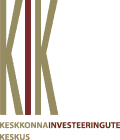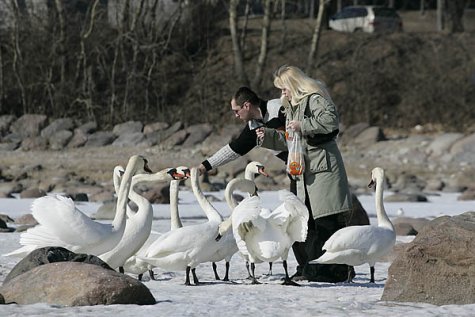No need to feed waterfowl
Information: Tõnu Talvi, Conservation biologist, Environmental Board
Photo: Arne Ader
Translation: Liis
Feeding mute swans. Merivälja, Tallinn
The Environmental Board (Keskkonnaamet) reminds that it is not advisable to feed mallards, mute swans and other waterfowl who can often be seen in city environments. Extra feeding of waterfowl can impair the physical condition of the birds, their flight capacity and also their long-term reproductive success.
The normal behaviour of waterfowl is to migrate to wintering grounds in the south and west. In feeding birds, humans support exceptions in nature, unnatural behaviour and the weakening of natural behaviour codes. Feeding birds is short-sighted and irresponsible.
“Waterfowl who have been lured to stay in a human neighbourhood by extra feeding lose a significant part of their physiological capacity and instincts. The birds lose their inherent migration instinct, become easy prey to predators and, being generally together in large numbers, they easily catch diseases and also spread them to each other.
For humans diseased birds may also become a hazard in close contact, in addition causing directly threatening traffic hazards. The mute swan for instance is one wild bird species that in extraordinary circumstances, due to disturbances or illness, can turn out to be a direct threat to the safety of humans (particularly children and the elderly)," says Tõnu Talvi, biologist at the Department of Nature Conservation of the Environmental Board.
According to Teet Koitjärve, advisor to the Environmental Board, people mostly offer birds white bread products. Flour products from carbohydrate-rich and highly refined raw materials don’t belong to the natural diet of the birds because they damage the natural processes of the bird’s body and flight power and also next spring’s breeding success.
For waterfowl best is to behave according to their natural instincts developed during millennia and migrate for wintering to more suitable water bodies as the weather becomes colder and there is less access to natural food.
Additional information:
(Estonian 22.10.2013)









